Thursday, September 4th
| 9:30–11:00 a.m. | Opening Day Kickoff, Montag Den To kick off ICL Opening Day, join the group for a special coffee and refreshments at 9:30 a.m. The program starts at 10:00 a.m. as we begin the Fall Semester of 2014.
**Please wear your name tag!** |
| 11:00 a.m.–12:00 p.m. | "WU Upcoming Academic Year," Marlene Moore, Montag Den
|
| 12:50–2:50 p.m. | "Here's How We Start Our Year," Willamette Singers, Dr. Wallace Long–Director, [Solveig Holmquist], ***Rogers Rehearsal Hall, Hudson Music Building*** NOTE TIME!!
We've enjoyed this jazz group's exciting and polished performances for years, and have even had the fun of hearing final dress rehearsals before top-level appearances out of town. But how do they get to that point? On the first day of ICL's fall term, join the Willamette Singers in one of their very first classes of the 2014-2015 academic year under master teacher Dr. Wallace Long, Jr. As the newly-formed group begins work tackling new music, what do he and they see and hear, and what do they do about it? What's most important, and what can wait? How do the students begin to know each other in this exciting way? Don't miss this rare opportunity to gain insight into the skills required for this highly specialized musical genre. Please try to arrive at the start of their rehearsal, if possible. Willamette Singers is a vocal jazz group joining 12 solo voices with piano, bass and drums, led by Professor Wallace Long. Recent off-campus performance venues include, Washington, Idaho, California, and Texas. In 1999, the group was invited to perform at the American Choral Directors Association national convention in Chicago, then again in New York City in 2003. Most recently, they were invited to the 2013 national convention in Dallas, Texas. |
Tuesday, September 9th
| 10:00 a.m.–12:00 p.m. | "State of the State Economy," Oregon State Economist Mark McMullin [Mark Kassoff], Ford 122
Mark McMullen was named interim Oregon State Economist in September, 2011. McMullen, who was director of consulting at Moody's Analytics, took over chief economist duties when Tom Potiowsky left last September to resume a teaching career at Portland State University. Since then, McMullen has directed the Oregon Office of Economic Analysis, which, among other duties, prepares the quarterly revenue forecasts on which the Legislature bases its biennial budget. In April, 2012 he was officially named State Economist. Mr. McMullen has graciously provided a copy of his slides about Oregon's Regional Economy. (This is a 2.8.MB file. Broadband connection advised.) |
| 1:00 p.m.–2:00 p.m. | "Top Girls," by Gary Churchill, Willamette University Theater presentation [Deborah Ehlers], Ford 122 A skeptical and comical look at the role of women in contemporary society from one of Britain’s greatest theatrical innovators. The action swings from a smart Thatcher-era London women’s employment agency to a cottage in rural East Anglia, as it considers the sacrifices and compromises women have to make to carve out a place for themselves. Overlapping dialogue, inventive doubling of characters and the most unusual dinner party you’ll ever see combine to create a truly memorable evening. Willamette University theater staff and students will present to ICL. |
| 2:00–3:00 p.m. | "Experiencing Hubble: Understanding the Greatest Images of the Universe," Video lecture, Prof. David M. Meyer [Paul Rice] , Ford 122
Stars more than eight times as massive as the sun take a radically different path at the end of their lives, disintegrating in a colossal explosion known as a supernova. Hubble's image of the famous Crab Nebula shows the expanding cloud of material from a supernova that was witnessed on Earth in the year 1054 |
Thursday, September 11th
| 10:00–12:00 a.m. | “On the Wrong Side of History: Gay Rights and the Boy Scouts of America," Richard Ellis [Peter Rasmussen], Ford Hall 122
Description: I will talk about the origins and development of the Scouts’ policy excluding gays and how the Scouts came to defend that policy, not just in law courts but in the court of public opinion. I will also talk about the significance of the new policy the Scouts enacted last year that excludes gay adult “Scouters,” but allows gay individuals under the age of 18 to be Scouts. Finally, I want to speculate a bit on what the future holds for the Boy Scouts. Professor Ellis joined Willamette University in 1990 after completing his B.A. in Politics from the University of California, Santa Cruz (1982), and his M.A. (1984) and Ph.D. (1989) in Political Science from the University of California, Berkeley. He teaches a number of courses in the area of American politics, including the presidency, political development, and the initiative process. In addition he teaches courses on liberalism, privacy, and patriotism. He has written widely on the history of the American presidency and American political culture. His most recent book is The Development of the American Presidency. |
| 1:00–3:00 p.m. | "A Glimpse Inside The Wonderful World Of Movies," Loretta Miles [Betty Swinkels], Ford 122
Local entrepreneur, Loretta MIles, will discuss the current state of film as seen through the eyes of a theater owner. Ms. Miles is owner and operator of Salem Cinema. She will discuss her passion driven business and give a true insiders peek into the inner workings of owning an independent movie theater in today's rapidly changing industry. Loretta Miles began working at Salem Cinema as a projectionist in 1984, two years after its founding. She purchased it in 1990. In 2009 she relocated the business from SE High Street to a three-screen theater at 1127 Broadway NE. She was one of the founders of the Salem Film Festival. She is responsible for making Salem Cinema the Oregon venue for the Manhattan Short Film Festival. |
Tuesday, September 16th
| 10:00 a.m.–12:00 p.m. | "Better Athletics Through Chemistry - Problems with the Arguments Against the Use of Ergogenic Aids," Peter Harmer [Bob Muir], Ford 122
Ergogenic aids are substances, devices, or practices that enhance an individual’s energy use, production, or recovery. The form an ergogenic aid may take can be quite varied. Stretching and weight training are physical ergogenic aids. Visualization and hypnosis are mental ergogenic aids. Lighter weight running shoes and better designed golf clubs are mechanical ergogenic aids. But perhaps the most commonly recognized form of ergogenic aids is the dietary supplement. Peter A. Harmer, Ph.D., MPH, ATC, FACS Education: Additional Appointments: Courses: |
| 1:00–2:00 p.m. | "How to Listen to and Understand Great Music, Video Lecture 28: Classical-era Opera - The Rise of Opera Buffa," Dr. Robert Greenberg [Solveig Holmquist], Ford 122
Opera buffa was inspired by the Italian commedia dell'arte, with its more realistic plots, smaller casts, and more tuneful music that focused more on everyday people than on the upper class. Giovanni Battista Pergolesi's opera La serva padrona of 1733 was embraced by Rousseau in the early 1750's as a model for the opera of the future. |
| 2:00–3:00 p.m. | "Meanwhile, Back at the Cathedral", Part I, Solveig Holmquist, Ford 122
In Part I, we will examine Haydn's Missa in Angustiis (Mass in Time of Peril), also know as the Nelson or Imperial Mass. This is of one his six last masses, composed after he returned to Austria after years in London. All were written for the Bergkirche, the little church in Eisenstadt, for Haydn's old employers, the Esterhazy family. |
Thursday, September 18th
| 10:00 a.m.–12:00 p.m. | Great Decisions: Defense Technology [Jeanette Flaming], Ford 122
Jim Heltzel, Mike Gilbert and Terry Svingen will present. |
| 1:00–3:00 p.m. | "The Human Microbiome: How Microbes Influence Our Bodies, Brains and Development,", Melissa Marks [Grant Thorsett], Ford 122
Our presenter is Melissa Marks, Assistant Professor of Biology, Willamette University In the first half of the presentation, we will explore the human microbiome. The Human Microbiome: Microbial cells, the majority of which are bacterial, outnumber human cells in our bodies by about 10 to 1. While a small minority of these can cause disease, most are thought to be harmless. Recently, we have begun to understand that these harmless microbes are, in fact, essential for our proper development and physiological function. We will explore some of the newest research about the functions and interactions of these microscopic inhabitants. In the second half of the presentation, we will look at microbiomes in other contexts (soil, water, rocks). The Earth Microbiome: Some recent discoveries in microbial physiology and ecology are changing the way we think about ecosystems. New technologies and scientific approaches to studying microbial life may change the way in which we understand local and global nutrient cycling as well as microbial interactions with other organisms. In this session, we will explore how our understanding of microbial communities may help us better understand larger organismal communities. Education: Teaching Philosophy: Research Interests: |
Tuesday, September 23rd
| 10:00 a.m.-12:00 p.m. | "European Socialism: A concise history," Bill Smaldone [Bill Griffitts], Ford 122
Bill Smaldone came to Willamette's History Department in 1991. In addition to general surveys in modern European history, he offers courses on German and Russian history, Latin American history, urban history, and the Holocaust. Education: Research and Teaching: |
| 1:00–2:00 p.m. | "Entrepreneurship," Wade Brooks [Judy Heltzel], Ford 122
Biography: Wade began his career during his undergraduate studies when he created his first startup. With less than a $1,000 investment he built a business that became the first Apple Computer value added reseller (VAR) in the US. After six years of rapid growth he sold the company to a competitor. Over the next ten years he held numerous executive management positions in technology and finance companies. In 1999 he was recruited to be the CEO of a startup e-commerce company where he led two successful financing rounds and the sale of the company in 2001. Wade is a mentor in Nike TechStars, Portland Incubator Experience (W+K, Nike, Google, Coca Cola), The Portland Seed Fund, SURF Incubator (Seattle) and is an advisor and board member for numerous early stage companies. Wade retired at the age of 37 and backpacked throughout the third world from Mt. Everest in Nepal to the Bay Islands of Honduras. He is a Certified Rescue Scuba Diver, Eagle Scout, and vegetarian. Wade has a BS and MBA from Willamette University and completed the Advanced Financial Management Program at Harvard Business School. He is a co-founder of the Willamette MBA Angel Fund and the Executive Director of that fund. Education: |
| 2:00–3:00 p.m. | "The Story of Human Language Video Series: Dialects–The Fallacy of Blackboard Grammar," Prof. John McWhorter [Jim Brown], Ford 122
Scope: Understanding language change and how languages differ helps us to see that many of the things we are taught are “wrong” about speech are misanalyses. Grammarians of the 1600s and 1700s passed many of these conceptions down to us, assuming that all languages should be patterned after Latin and Greek (thus, no Billy and me went to the store), that language change is decay (thus requiring the retention of whom), and that grammar must make strictly logical sense (thus, a pox on I ain’t seen nothin’). Another artificial incursion into the natural history of language is that because of the influence of standard dialects, people who speak written languages are often taught that constructions that they produce spontaneously are “errors” that they must be taught out of. This is a prescriptivist approach to language, in contrast to the descriptivist approach that linguists take. The presentation will be hosted by Jim Brown. |
Thursday, September 25th
| 10:00 a.m.–12:00 p.m. | "Advancing and Emerging Technologies for Corrections," Shelli Honeywell [Dave MacMillan], Ford 122
Shellí Honeywell is currently the Chief Information Security Officer and Operations and Policy Manager for the Oregon Department of Corrections (ODOC). In a newly defined role, she is managing a project that will take Oregon into an unprecedented technological era that has statewide Departmental impact. The enhancements made through technology have improved safety and security within ODOC while embracing the Department’s mission and impacting 4,500 employees that provide oversight to over 14,000 Adults in Custody. Of these 93% will return to Oregon’s local communities. Shellí previously led the Oregon Department of Energy’s work developing and implementing major sustainable energy projects throughout the state. Prior to her rotation in Energy, Shellí oversaw the Office of Legal Affairs and Information Systems for the Oregon Department of Corrections. Before a career in state government, Shellí contributed to the field of labor and employment law working for associations representing management. Shellí has a J.D. in Law and a M.B.A. from Willamette University; and a B.S. in Business Administration from Western Oregon University. Shellí is passionate about life and her family. She brings an insightful perspective to the Department, because of her unique background and desire to enhance the Criminal Justice system. |
| 1:00–3:00 p.m. | Hallie Ford Museum Presentation, John Olbrantz [Sharon Wright], ***Hallie Ford Museum*** John Olbrantz and a docent will lead ICL members on tours of the following exhibits: "John James Audubon: The Birds of America" — Study Gallery and Print Study CenterJohn James Audubon (1785-1851) was a French-American painter, ornithologist, and naturalist. His major work, The Birds of America, is considered one of the finest ornithological books ever published. In it, he identified 25 new species of birds. Organized by Director John Olbrantz, the exhibition features approximately 30 Audubon bird prints on loan from the Hamersly Library at Western Oregon University in Monmouth. "A Contemporary Bestiary" — Melvin Henderson-Rubio GalleryA Contemporary Bestiary features work by artists from Oregon, Washington, Idaho, and Montana who incorporate animal imagery in their artwork as a means to address a wide variety of issues. Organized by Director John Olbrantz, the exhibition includes paintings, sculpture, prints, drawings, ceramics, and photography by artists Alfredo Arreguin, Rick Bartow, Frank Boyden, Deborah Butterfield, David Gilhooly, Heidi Preuss Grew, Gaylen Hansen, Robert McCauley, and Ted Waddell, among others.
John Olbrantz is currently the Maribeth Collins Director of the Hallie Ford Museum of Art at Willamette University. A native of Washington, he holds a BA degree from Western Washington University and an MA degree from the University of Washington in the history of art, and a Study Certificate from the University of California, Berkeley, in arts administration and management. In addition, he did further graduate study at the University of California, Santa Barbara. A specialist in ancient and American art, he is particularly interested in Roman art, the history of archaeology, contemporary American art, and the history of museums. |
Tuesday, September 30th
| 10:00 a.m.–12:00 p.m. | "The Magic of Hollywood’s Movie Music," Edmund Stone [Judy Heltzel], Ford 122
The presentation includes some of the most iconic music moments from movie scenes of the past 80 years, including Gone With The Wind; Casablanca; The Wizard of Oz; The Pink Panther; The Good, The Bad and The Ugly; The Godfather; Star Wars; Star Trek; Harry Potter; and The Lord of the Rings. Edmund Stone writes: "I grew up on an English farm and listened constantly to BBC Radio, where I developed an early fascination for entertainment. In my late teens I joined a youth theater and toured in Romeo & Juliet, before moving to Scotland, where my love for radio, film and writing merged together when I became a film correspondent for BBC Radio and Thompson Publications. I needed a larger canvas to work with and moved to Hollywood in 1980, covering the Academy Awards, interviewing Alfred Hitchcock and Mel Blanc, and eventually narrating more than 1,000 educational audio stories. Thirty years later I am still doing the work I love. I host programming on All Classical FM on weekend afternoons and evenings, occasionally emcee events and classical concerts, and sometimes even narrate with orchestras. In 2006 I created The Score, a national (and now international) syndicated film music program, heard on All Classical FM every Saturday and Sunday at 2 p.m. Writing, producing and hosting this program is a wonderful opportunity for me to share with listeners my passion for symphonic music in the movies. |
| 1:00–3:00 p.m. | "The Golden Age of Aviation," Brian Dalton [Jim Brown], Ford 122
|


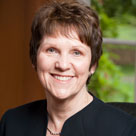 Presentation by Willamette Dean, Marlene Moore. Dean Moore will be discussing the upcoming academic year at Willamette University.
Presentation by Willamette Dean, Marlene Moore. Dean Moore will be discussing the upcoming academic year at Willamette University.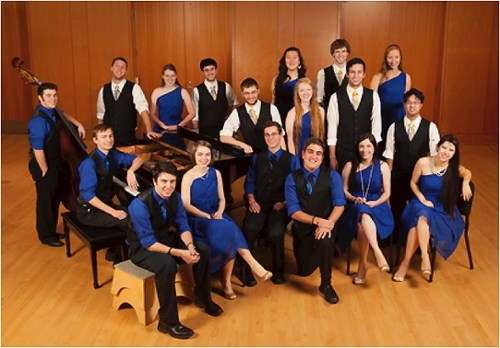
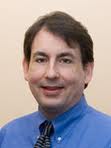 State Economist Mark McMullen will review Oregon's recent economic performance and future prospects, focusing on the challenges to private business, the public sector, and labor force, as the U.S. slowly emerges from a severe economic recession.
State Economist Mark McMullen will review Oregon's recent economic performance and future prospects, focusing on the challenges to private business, the public sector, and labor force, as the U.S. slowly emerges from a severe economic recession.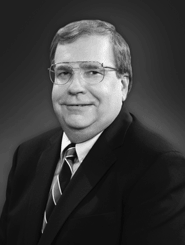 6. The Crab Nebula—A Supernova's Aftermath
6. The Crab Nebula—A Supernova's Aftermath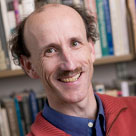
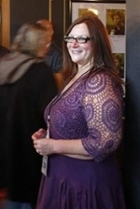
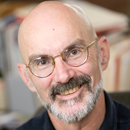
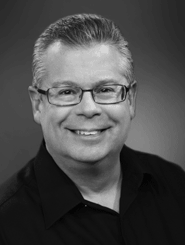 The magnificent opera seria of the Baroque Era was, by the 1730s, increasingly perceived as being elitist and socially irrelevant. In France, Jean-Jacques Rousseau spearheaded the support of a new type of opera (opera buffa), which had emerged in Italy, as the ideal opera for the new Age of Enlightenment.
The magnificent opera seria of the Baroque Era was, by the 1730s, increasingly perceived as being elitist and socially irrelevant. In France, Jean-Jacques Rousseau spearheaded the support of a new type of opera (opera buffa), which had emerged in Italy, as the ideal opera for the new Age of Enlightenment.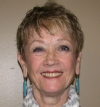 Professor Greenberg's lectures exploring the music of the Classic Era rightly feature the rise and development of important instrumental forms, going so far as to ascribe the influence of opera to the Sonata-Allegro form's distinct structure, with its many and varied characters and the development of their "stories". It would be wrong, however, to assume that the only compositions for voices, both solo and in ensemble, were to be heard in the opera houses. Indeed, vital and rich choral/orchestral compositions were being commissioned and heard in the major cathedrals, bishoprics, and baronial chapels, functioning as important aspects of worship.
Professor Greenberg's lectures exploring the music of the Classic Era rightly feature the rise and development of important instrumental forms, going so far as to ascribe the influence of opera to the Sonata-Allegro form's distinct structure, with its many and varied characters and the development of their "stories". It would be wrong, however, to assume that the only compositions for voices, both solo and in ensemble, were to be heard in the opera houses. Indeed, vital and rich choral/orchestral compositions were being commissioned and heard in the major cathedrals, bishoprics, and baronial chapels, functioning as important aspects of worship. From robotic planes to cyberweapons to 3D printing and human enhancement, new “game changing” technologies are moving from science fiction to battlefield reality–all during an age of fiscal austerity. We’ve gone through this before with such once-fanciful, but now normal, concepts as airplanes, submarines and tanks.
From robotic planes to cyberweapons to 3D printing and human enhancement, new “game changing” technologies are moving from science fiction to battlefield reality–all during an age of fiscal austerity. We’ve gone through this before with such once-fanciful, but now normal, concepts as airplanes, submarines and tanks.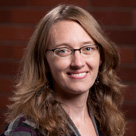
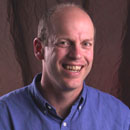 Willamette University's Professor of History, Bill Smaldone, will present some of the main arguments of his new book called European Socialism: A concise history.
Willamette University's Professor of History, Bill Smaldone, will present some of the main arguments of his new book called European Socialism: A concise history.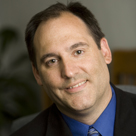 Entrepreneurship is about vision, passion and assessing your resources and skills. You discover a problem that needs to be solved, you gather your resources and put your considerable force of will behind your convictions. It also helps to know something about business.
Entrepreneurship is about vision, passion and assessing your resources and skills. You discover a problem that needs to be solved, you gather your resources and put your considerable force of will behind your convictions. It also helps to know something about business.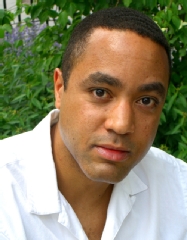
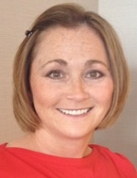 A presentation that identifies the use of current technology within a correctional setting to assist in an increase in positive inmate behavior and the reduction of recidivism. Affording adults in custody access to MP3 players, video interactive phone calls (VIP) and Secure Mail is changing the way traditional Department of Corrections can manage their inmate population. Come explore how cutting edge technology has set Oregon apart from other states, while maintaining its ability to manage inmates, yet having the lowest recidivism rate in the country.
A presentation that identifies the use of current technology within a correctional setting to assist in an increase in positive inmate behavior and the reduction of recidivism. Affording adults in custody access to MP3 players, video interactive phone calls (VIP) and Secure Mail is changing the way traditional Department of Corrections can manage their inmate population. Come explore how cutting edge technology has set Oregon apart from other states, while maintaining its ability to manage inmates, yet having the lowest recidivism rate in the country. 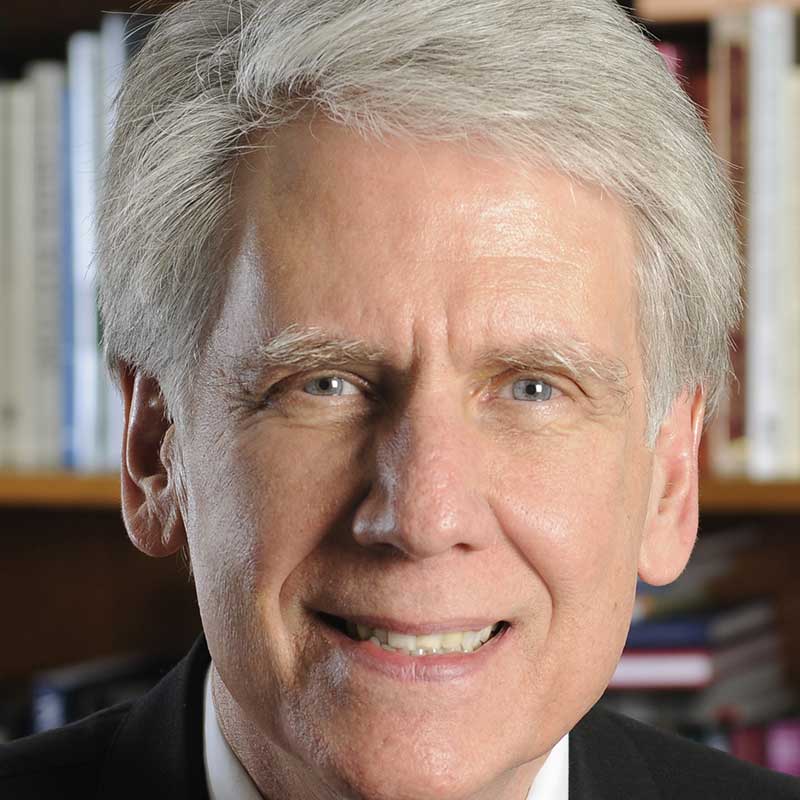
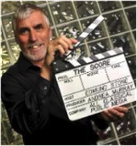
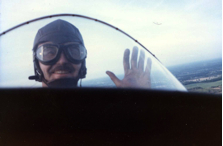 Brian Dalton is a fifth generation Oregonian, his family first arriving with the 1851 wagon trains from Bangor, Maine. He is also a fourth generation Dallas area resident, his great-grandfather having moved to Dallas from Independence in 1899. Brian graduated from Dallas High School in 1966. He earned his Bachelor of Arts degree in English from Colgate University in New York (1970), which included time with the London Study Group in England. He has a Master's degree in Public Administration from the University of Southern California (1972), where he concurrently attended the University of California Los Angeles (UCLA) for ROTC training. Upon graduation he entered the Regular Army as a Medical Service Corps officer for a 21-year career, serving in many locations throughout the world. Brian is a graduate of the Army's resident Command and General Staff College (1986) and has held key leadership and staff positions at the Battalion, Brigade, Department of the Army, and the Combined Forces (Korea-United States) Command levels. He holds several awards including the Legion of Merit and the Expert Field Medical Badge. He retired as a Lieutenant Colonel in 1993. In that year, with his brother, he founded Dalton Rock, Inc., which has become a major source of aggregate material in the region. The rock company was sold in the summer of 2008 and Brian started the Dalton Land and Cattle Company on forest land up the Rickreall Creek west of Dallas. He was an elected member of the Dallas City Council from 2001 through 2010, serving as its President 2009-2010. In November 2010, he was elected Mayor of the City of Dallas. He was reelected to that position in 2012. He is also the Past President of the Dallas Area Chamber of Commerce and serves on the Dallas Economic Development Commission. He serves on the Dallas Urban Renewal Advisory Committee as well as being a member of a number of other community oriented service committees. In January 2005, Brian was selected as First Citizen of Dallas. He has been a pilot since 1970. His primary hobby is restoring and flying antique airplanes, chief among them, a 1928 Travel Air 4000 biplane. He currently has a second 1928 Travel Air under restoration. Brian is married to the former Carol Dudley, an Occupational Therapist at Salem Hospital. She is also a pilot and flies the family’s 1941 Piper J-3 Cub.
Brian Dalton is a fifth generation Oregonian, his family first arriving with the 1851 wagon trains from Bangor, Maine. He is also a fourth generation Dallas area resident, his great-grandfather having moved to Dallas from Independence in 1899. Brian graduated from Dallas High School in 1966. He earned his Bachelor of Arts degree in English from Colgate University in New York (1970), which included time with the London Study Group in England. He has a Master's degree in Public Administration from the University of Southern California (1972), where he concurrently attended the University of California Los Angeles (UCLA) for ROTC training. Upon graduation he entered the Regular Army as a Medical Service Corps officer for a 21-year career, serving in many locations throughout the world. Brian is a graduate of the Army's resident Command and General Staff College (1986) and has held key leadership and staff positions at the Battalion, Brigade, Department of the Army, and the Combined Forces (Korea-United States) Command levels. He holds several awards including the Legion of Merit and the Expert Field Medical Badge. He retired as a Lieutenant Colonel in 1993. In that year, with his brother, he founded Dalton Rock, Inc., which has become a major source of aggregate material in the region. The rock company was sold in the summer of 2008 and Brian started the Dalton Land and Cattle Company on forest land up the Rickreall Creek west of Dallas. He was an elected member of the Dallas City Council from 2001 through 2010, serving as its President 2009-2010. In November 2010, he was elected Mayor of the City of Dallas. He was reelected to that position in 2012. He is also the Past President of the Dallas Area Chamber of Commerce and serves on the Dallas Economic Development Commission. He serves on the Dallas Urban Renewal Advisory Committee as well as being a member of a number of other community oriented service committees. In January 2005, Brian was selected as First Citizen of Dallas. He has been a pilot since 1970. His primary hobby is restoring and flying antique airplanes, chief among them, a 1928 Travel Air 4000 biplane. He currently has a second 1928 Travel Air under restoration. Brian is married to the former Carol Dudley, an Occupational Therapist at Salem Hospital. She is also a pilot and flies the family’s 1941 Piper J-3 Cub.